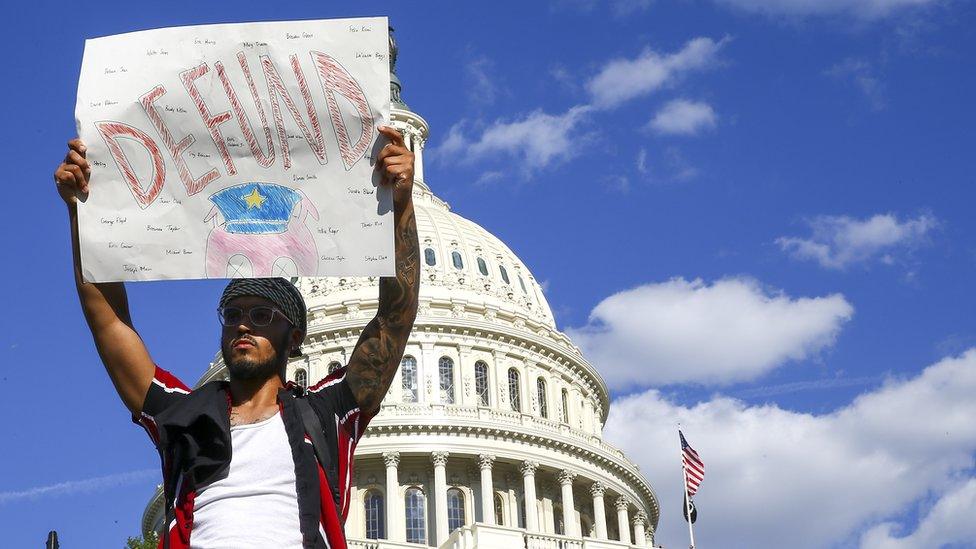Rodney King: Camera that captured 1991 beating to be auctioned
- Published
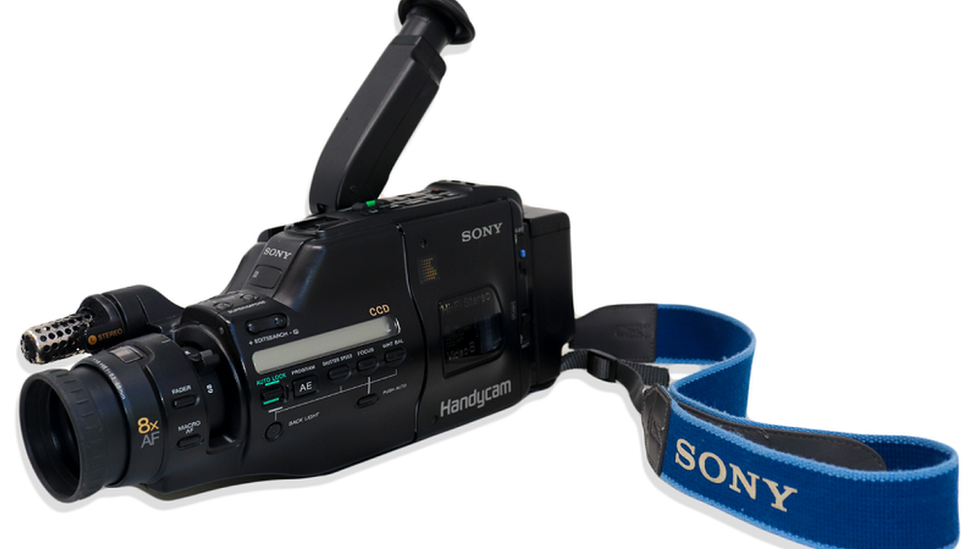
George Holliday used the Sony Video8 Handycam to film King's beating in 1991
The camera used to film the beating of Rodney King by Los Angeles police in 1991, a case that triggered deadly race riots, is to be auctioned this week.
Nate D Sanders Auctions in LA will take bids for the Sony Video8 Handycam on Thursday.
The police brutality against King was filmed on the camera by bystander George Holliday.
The beating left King with brain damage, but the white officers involved were acquitted a year later.
The case had a profound effect on race relations and the use of force by police in the US.
Mr Holliday's footage of the beating, filmed from the balcony of his apartment, is considered to be the first viral video of policy brutality and an early example of citizen journalism.
The footage foreshadowed the use of mobile phones to record police abuse, as seen in the recent death of African-American George Floyd in custody.
Bidding for Mr Holliday's camera will begin at $225,000 (£174,948), the auction house said.
"I hope this video camera inspires people to use their power to record events that they find troubling. Don't be afraid to use it," Mr Holliday, a self-employed plumber, told the auction house.
The camera comes with a notarised letter of authenticity by Mr Holliday.
The batteries have been removed to protect the camera, which is no longer functional but remains in good condition otherwise. The tape of King's beating is not included.
What happened to Rodney King?
King, then a construction worker, was stopped for speeding on a dark street in LA on 3 March 1991.
The four LA police officers who pulled him over hit him dozens of times with their batons, kicked him and shot him with stun guns.
Unbeknown to the officers, Mr Holliday filmed the beating and shared the tape with a local TV station, whipping up national and global outrage.
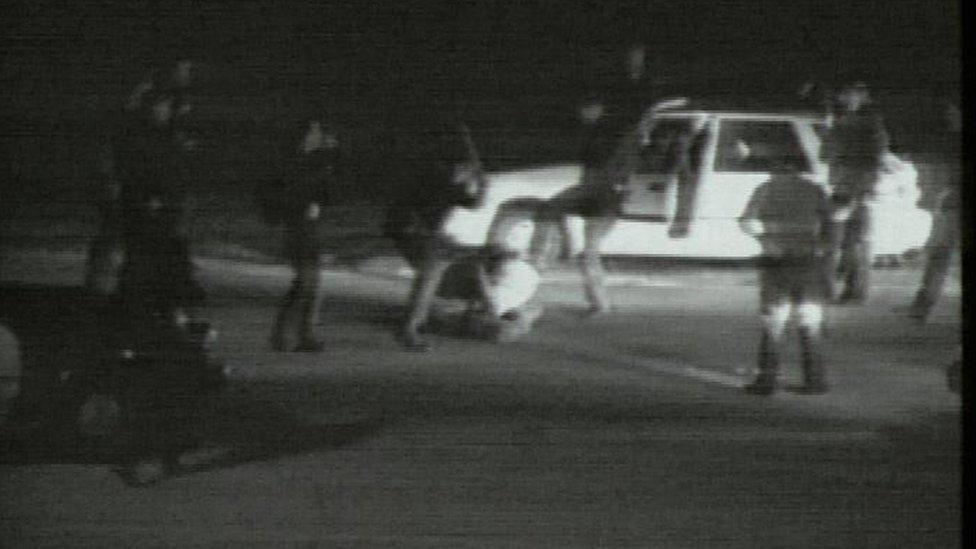
George Holliday caught the beating of Rodney King on camera from his flat's balcony
The four officers were later tried on charges of use of excessive force, but none of them were convicted.
The rioting that gripped LA in the wake of the not-guilty verdicts went on for days, leaving 50 people dead and causing $1bn of damage to the city.
King went on television three days into the rioting to call for calm, pleading that everyone "just get along". Years later, he said he wanted that statement to be his legacy.
In 2012, King told the Los Angeles Times, external that while he had come to terms with his broader legacy, dealing with the past had not been easy.
"I sometimes feel like I'm caught in a vice," he said. "Some people feel like I'm some kind of hero. Others hate me. They say I deserved it. Other people, I can hear them mocking me for when I called for an end to the destruction, like I'm a fool for believing in peace."
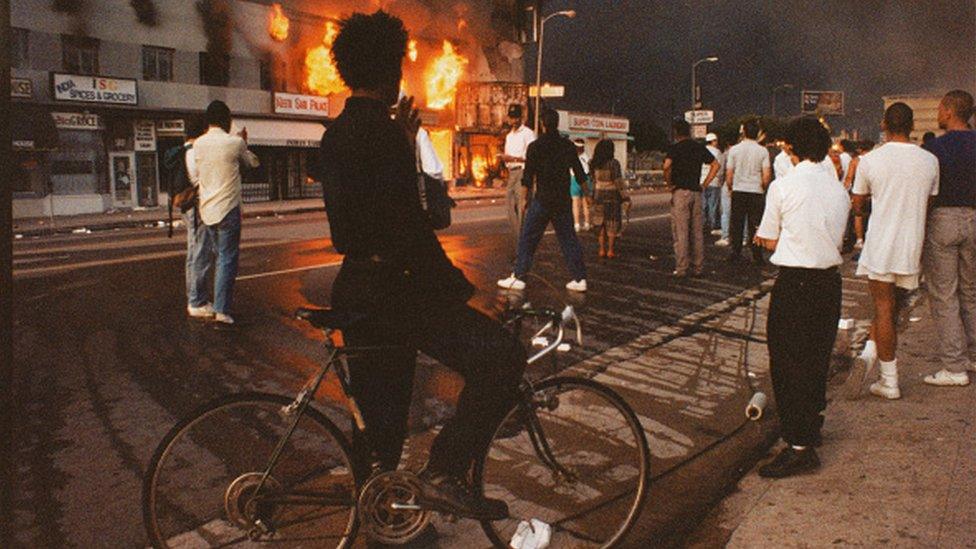
The not-guilty verdict in King's case triggered deadly race riots in 1992
In an interview with El País in 2017, external, Mr Holliday said he bumped into King at a petrol station about a year after the riots, having never spoken to him.
"He [King] said to me, 'You saved my life.' I didn't know what to say. We shook hands and said goodbye," Mr Holliday said.
King died at the age of 47 in 2012. His death was ruled an accidental drowning, after his fiancée discovered his body at the bottom of a swimming pool.
What impact did the case have?
While the use of excessive force was not uncommon, what made the King beating unusual is that it was captured on camera.
Broadcast on TV screens globally, the graphic footage shocked the world, leading to calls for police reform to root out racism and the use of excessive force.
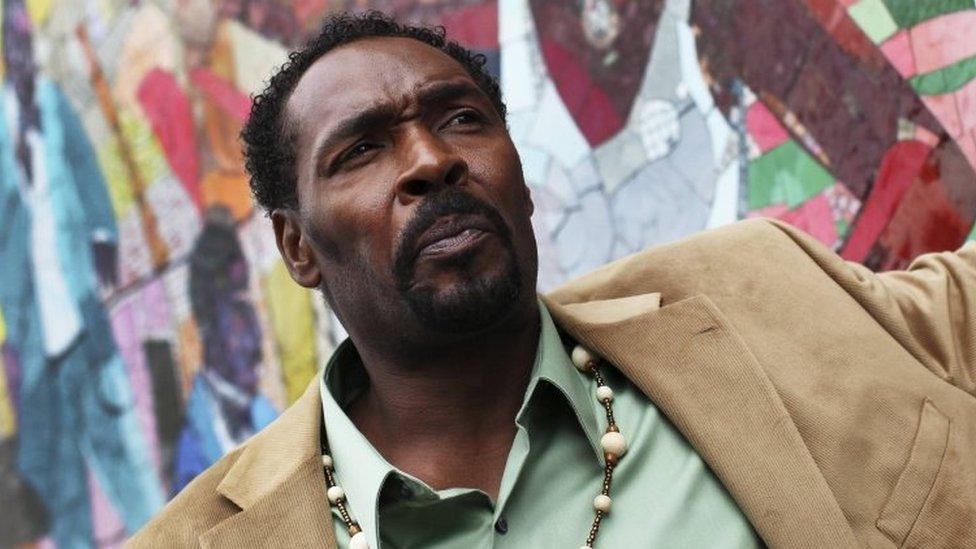
King called for calm during the rioting, pleading with everyone to "just get along"
The Los Angeles Police Department (LAPD) was forced to change after the King case, which highlighted widespread racism in the largely white, male force.
It was not uncommon for officers to describe African-Americans as "monkeys" and "gorillas", and some police bragged over their patrol car radios about beating suspects.
A commission, led by future US Secretary of State Warren Christopher, was set up to investigate the LAPD and its practices.
It recommended boosting multiculturalism in the police force and the LAPD slowly shifted to a more community-focused style of policing.
Bernard Parks: "It was the singular most important piece of evidence"
The video of King's beating ushered in the modern era of citizenship journalism, where bystanders film incidents of police brutality and share them online.
It also laid the groundwork for the anti-police brutality movements, such as Black Lives Matter, which has led racial-justice protests around the world in 2020.
- Published29 April 2012
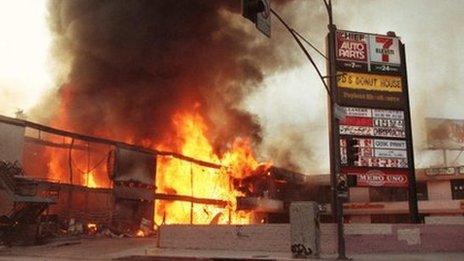
- Published11 June 2020
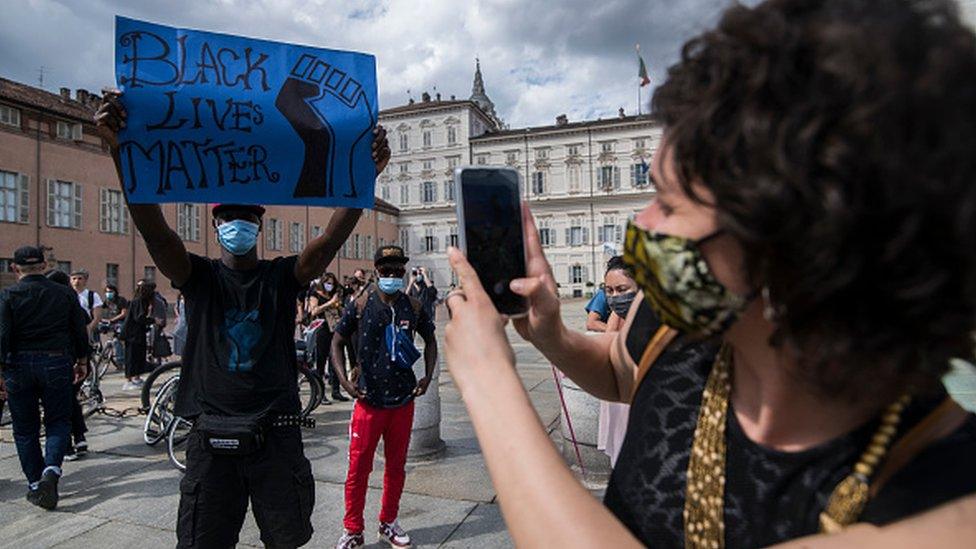
- Published8 June 2020
